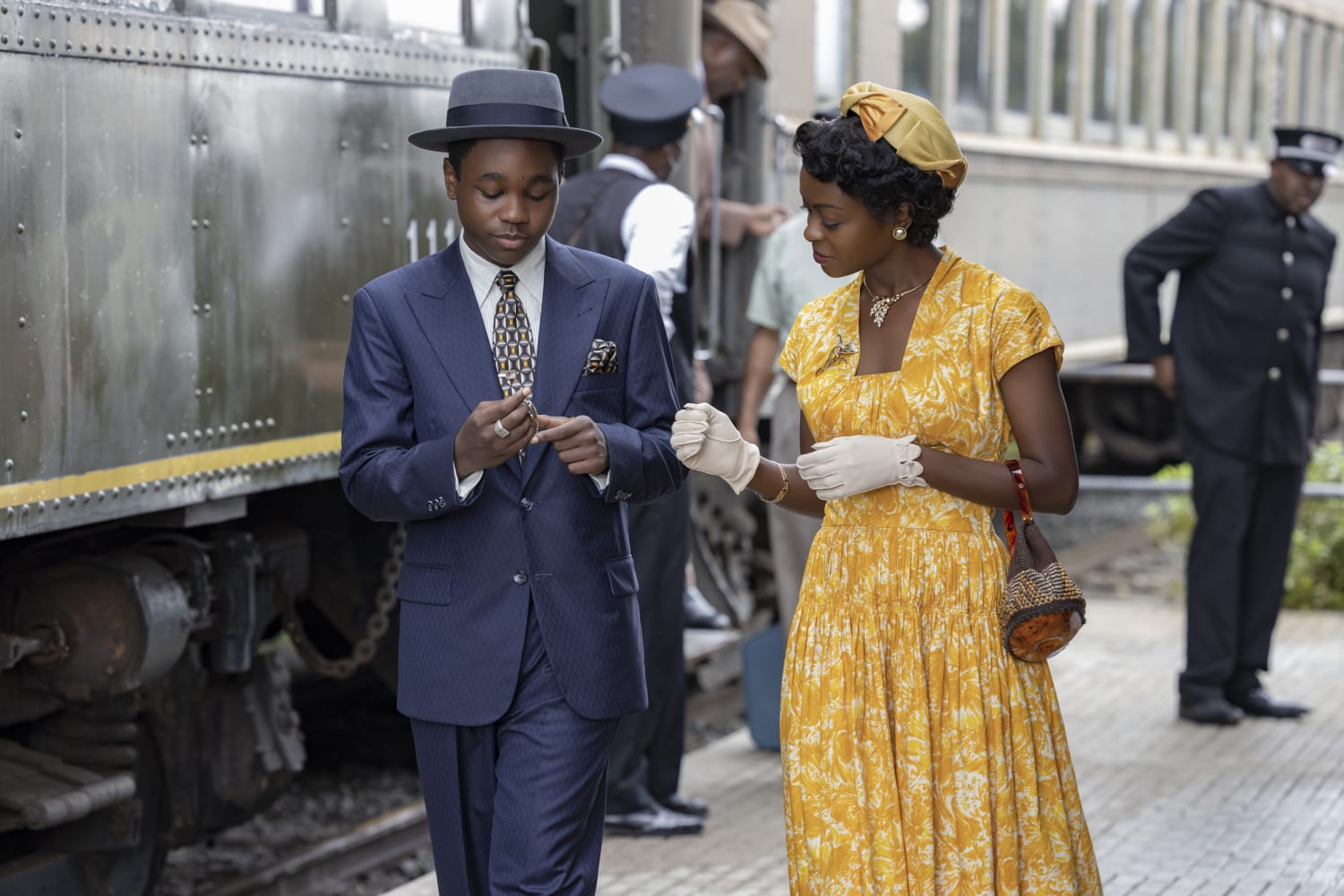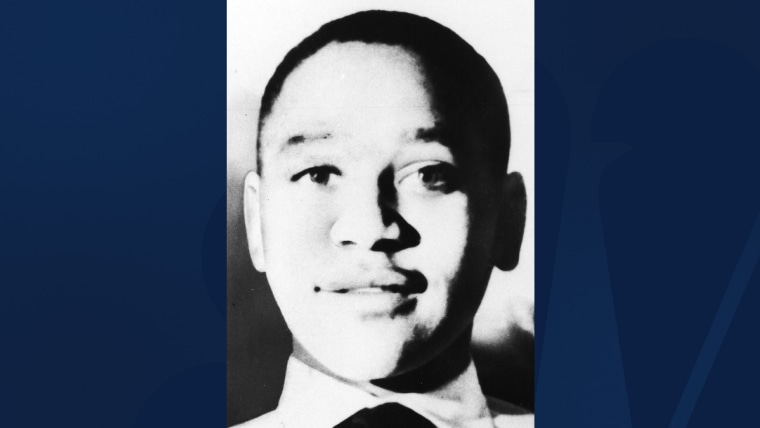The story of Emmett Till, the 14-year-old Black boy kidnapped and brutally murdered in Mississippi by two white men before they dumped his body in the Tallahatchie River in 1955, is not new. That level of racist vileness has been experienced by victims who came before and after the bright-eyed Chicago boy’s time, echoing recently in the 2020 murder of Ahmaud Arbery.
Yet, in “Till,” filmmaker Chinonye Chukwu offers viewers a different window into Emmett’s life through the perspective of his poised and graceful mother, Mamie Till-Mobley (Danielle Deadwyler).
Many mothers likely carry worries about the safety and well-being of their children. But for Black mothers like Mamie, this is a different sort of anxiety.
Through Deadwyler’s powerful performance, viewers will feel the palpable fear of Black mothers knowing they can never fully protect their Black children in white America. It doesn’t matter how much they teach their children the “right” way to speak or act; keeping Black children safe in this country has often proven to be a game of chance.
The film, which hit theaters Friday, begins in Chicago in the days leading up to Emmett’s (Jalyn Hall) fateful August trip to visit family in Money, Mississippi. Despite the Jim Crow microaggressions of the “liberal North,” Mamie has raised Emmett to see himself as a carefree young boy, not a young man bogged down by the perils of racism. Like most boys, he’s enamored with movie stars and excited by life. For her part, Mamie is nervous.
In his National Book Award-winning novel, “Between the World and Me,” Ta-Nehisi Coates writes, “Black people love their children with a kind of obsession. You are all we have, and you come to us endangered.” From the moment Black people were brought in chains to the shores of the United States on slave ships, Black children were ripped from the arms and lives of their Black parents.
They were sold for their labor or their wombs — sometimes both. When enslavement was no longer a viable option, racial terror put on a new face. Lynching and the Klu Klux Klan were (and still are) fueled by white rage. It is a manic fury that destroys Black lives and inflicts irreparable harm on our community, especially on the psyches of Black mothers.
Many mothers likely carry worries about the safety and well-being of their children. But for Black mothers like Mamie, this is a different sort of anxiety. On-screen, it’s a feeling that we can see seeps into Mamie when a Marshall Field’s department store sales associate looks down her nose at Emmett and later in the young teen’s bedroom as she pleads with him to be mindful of himself around white people in the South. “Be small down there,” she tells him. The weight of those four small words are reminiscent of “the talk“Black parents have with their kids, particularly boys. Teaching Black kids not to take up space as a way to protect themselves is something that Black parents still do.
Following Emmett’s murder, Deadwyler gives a haunting performance in an intense courtroom scene.
Following Emmett’s murder, Deadwyler gives a haunting performance in an intense courtroom scene. In it, we see a mother forced to defend her parenting skills and murdered son during a sham trial for the men responsible. She is villainized, and her morals are questioned, but she remains steadfast as she talks about mothering Emmett from the first day of his life. She recalls the constant busyness of her hands as she cared for him and her determination to give him a complete understanding of his humanity, despite anti-Black violence.
When asked why she warned him to make himself smaller in the South, she refuses to be ridiculed for trying to keep her son out of harm’s way. Instead, she forces the citizens of Money to face their monstrosity, even though she knows they will allow her son’s killers to get away with murder. It’s not just Deadwyler’s words; her eyes and facial expressions deliver heartbreak and determination.
Despite this vicious cycle of trauma, Black people have been able to exist and carve out ways to thrive and celebrate our existence and history, but it has deeply wounded a community that has already been through so much.
In her 2019 study, The Intergenerational Transmission of Discrimination: Children’s Experiences of Unfair Treatment and Their Mothers’ Health at Midlife, Cynthia G. Colen, an associate professor and the vice chair of the department of sociology at Ohio State University, found that the racial discrimination that children faced had adverse effects on the health and well-being of their mothers.
Colen and her team noted that Black and Latinx mothers are constantly on “high alert to the possibility that their child will encounter unfair treatment.“ Anti-Blackness terrorizes Black mothers, and many times that grief is not private
Like Mamie, whose brutal loss helped to galvanize the civil rights movement, the anguish of Black mothers today — for example, Sybrina Fulton, Trayvon Martin’s mother, and Tamika Palmer, Breonna Taylor’s mother — has been displayed on the world’s stage.
And yet, these women continue to tell the stories of their slain children so that we may all be reminded of the effect of white violence. Continuing to talk about it is the only path forward toward dismantling stereotypes, prejudices and racism, while promoting a path for healing.
The murder of Emmett Till, or more, Mamie Till-Mobley’s insistence on having an open casket to have the public look upon her son’s beaten and mutilated body without any cosmetic retouching, was perhaps the first time America had to face its atrocities in a very tangible way.
At a time when hashtags containing the names of Black lives taken and politicians attempting to bury and malign history and facts are plentiful, “Till” is one way for us to take a stark look at ourselves … again.
Source: | This article originally belongs to Nbcnews.com











